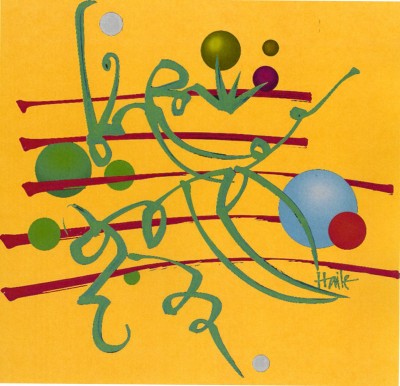
Composer: Ford, Andrew, 1957-
Country of origin: Australia
Title: Oma Kodu for Clarinet in A and String Quartet
Other titles:
Movements:
Year(s) composed: 2006
Publisher: Austrailian Music Centre
Duration (in minutes): 08
Clarinet type: A
Note: See comment below
One thought on “Ford Oma Kodu”
Comments are closed.
This single movement quintet is based on a Setu song from Estonia. Oma kodu translates as ‘my home’.
First performance: by Bourbaki Ensemble, David Angell, Ken Burnett at The Bourbaki Ensemble: music for strings (Macquarie Theatre) on 25 Jul 2010
Melodically, Oma kodu is based on the Setu song “Oma kodu kiitmise laul”, a traditional Estonian choral song with sentiments not unlike those of “Home Sweet Home”.
Program notes from composer: Oma kodu (2006) for clarinet in A and string quartet When my friends Colin Gray and Jenny Kena approached me in 2005, wanting to commission a piece of music, they had two specific requests. The first was that the piece should involve the Australia Ensemble’s clarinettist, Catherine McCorkill, and the second was that it should contain some reference to Estonian folk music. Jenny’s father John (Jaan) had come to Australia from Estonia in 1947. I was happy to oblige on both counts, and suggested that a clarinet quintet might be a good idea. Cathy thought so too, and the Australia Ensemble agreed to include the first performance in its 2007 season. Because I knew nothing at all about the folk music of Estonia, Jenny gave me a CD. It contained examples of the choral singing of the Setu people, an ethnic minority from South-eastern Estonia on the borders with Russia and Latvia. The Setu have occupied the same tiny region for nearly 9,000 years and they retain their own language and traditions. Unlike the rest of Lutheran Estonia, the Setu are officially Russian Orthodox, though this comparatively recent religious affiliation is tempered by much older pagan traditions. The song on the CD that immediately struck me was “Oma kodu kiitmise laul” – a song in praise of one’s own home – the words of which resemble those of “Home Sweet Home”, but without the sentimentality. The structure of the song seems to be typical enough of the Setu, in that a single voice takes the lead, the chorus joining in only for the final part of each verse. But I was drawn to the rather dogged nature of the melodic line, and, as it turned out, the song was also one of Jenny and Colin’s favourites. My quintet was composed quite quickly in April 2006, mostly during a visit to the United States. I had jotted down the Setu song on a scrap of manuscript paper and packed it in my luggage, knowing that I would have some spare time and hoping that I might be able to make a start on the piece. When I began work I was surprised to discover the tune dominating my thinking. Far from turning up as a mere quotation, “Oma kodu kiitmise laul” generated all the music in the piece. So although I did not set out to produce a monothematic and almost entirely modal work, this is exactly what happened.